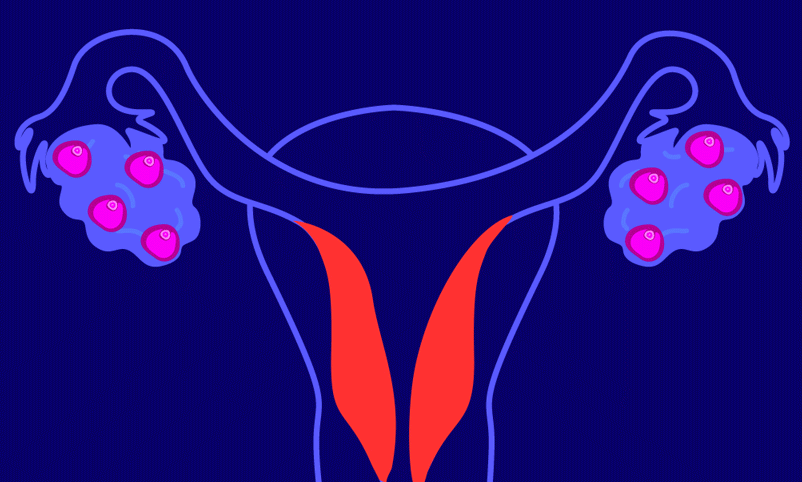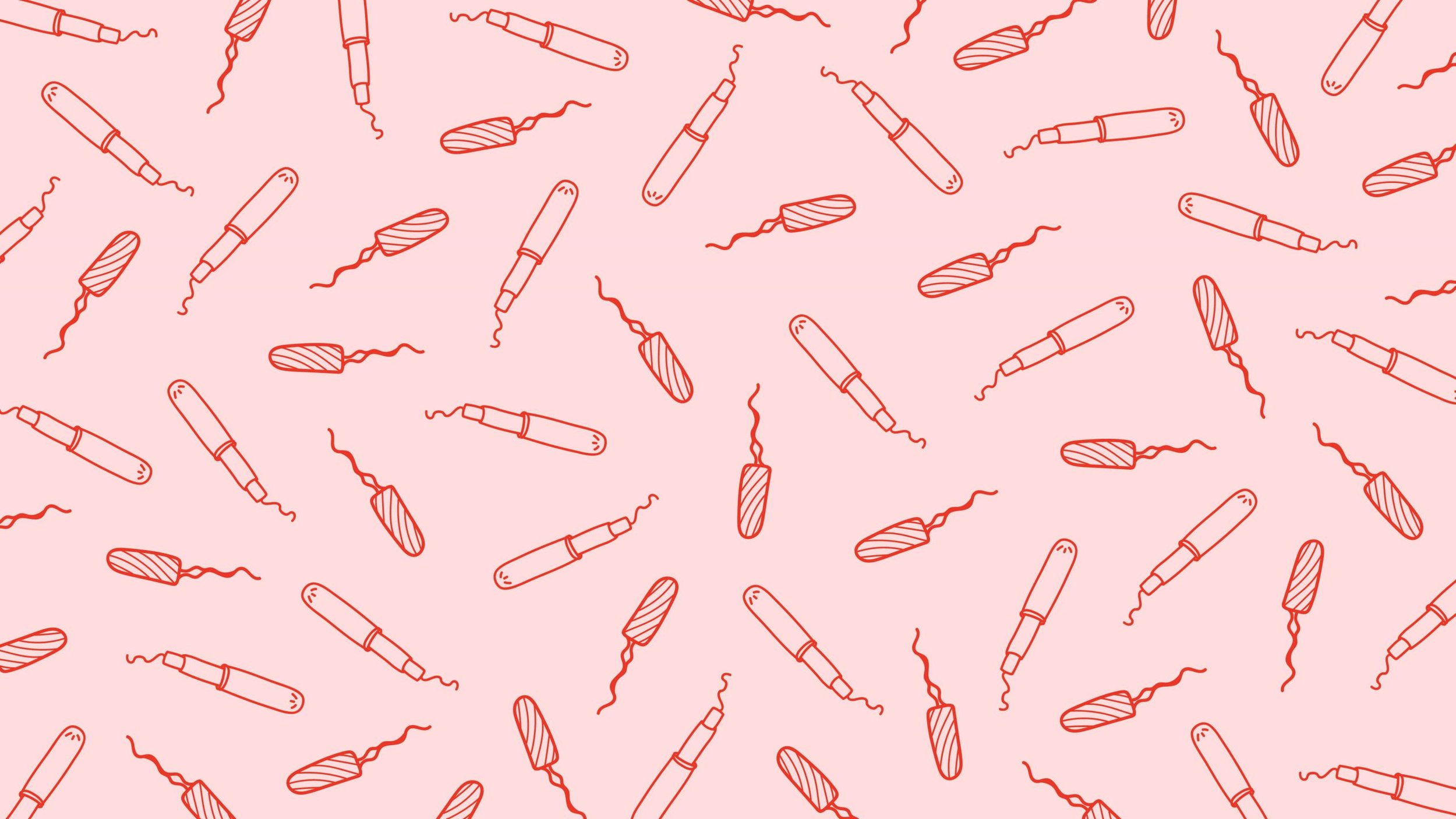
Periods
Menstruation, or having your period, is when the lining of the uterus flows out through your vagina in the form of blood and tissue (menses). Usually, menstruation begins between the ages of 11 and 14, and occurs each month for 3 to 7 days. Fun times! Essentially, periods are the body’s monthly notification that you’re not pregnant.
Illustration of the menstrual cycle, by Marcy Gooberman
FAQ
-
When periods happen regularly, this is called the menstrual cycle. The average menstrual cycle is 28 days long. However, cycles range from 21 to 35 days in adults and from 21 to 45 days in young teens.
Generally speaking, menstrual flow lasts 3 to 7 days. Once your period ends, hormones cause some of the eggs inside your ovaries to start to mature. These same hormones cause your uterus lining to thicken.
Midway through your menstrual cycle, one mature egg leaves the ovary (ovulation). Although most women don’t feel ovulation, some women experience pain in the lower abdomen.
After the egg leaves the ovary, it travels toward your uterus via a fallopian tube. As the egg travels, a soft lining builds up in the uterus. If pregnancy doesn’t occur, the lining breaks down, and the blood flows out of your body. This is your period. On average, you’ll lose 4 teaspoons of menstrual fluid.
This article provides a great, comprehensive overview from both a biological and personal perspective!
-
Premenstrual syndrome (PMS) occurs the week or two before menstruation and refers to the physical and emotional changes you might feel.
Symptoms include:
acne
bloating
breast tenderness
crying
depression
feeling tired
food cravings
headaches
joint or muscle pain
mood swings
trouble falling asleep
upset stomach, constipation, or diarrhea
-
During menstruation, your uterus contracts (thus, the cramps) to help the lining separate and leave the body. Here’s what you can do to lessen the pain:
orgasm
masturbate
exercise
rest
take an over-the-counter pain reliever
soak in a hot bath
use a heating pad
yoga
If your period keeps you from doing what you normally do, talk to your doctor about strategies to manage or treat your symptoms.
-
When a menstruator experiences a late or missed period, the most common concern is pregnancy. If this occurs, taking a pregnancy test is the only way to know for sure. However, many menstruators occasionally have irregular periods. Maybe you miss a period, or it comes earlier or later. Or maybe it’s notably heavier or lighter than usual.
Reasons your menstrual cycle might alter:
illness
medication
menopause
birth control
hormonal imbalance
stress
travel
poor nutrition
over exercising
sudden weight gain or loss
If you suspect you’re pregnant or are worried about changes in your period, talk to your doctor.
-
Check out our next basic on period problems! Remember, be sure to advocate yourself with your healthcare provider if you suspect your period is abnormal. You deserve the best comfort and care.
-
Given that the average menstruator spends over 6.25 years having their period, let’s first explore the different types of products out there you can use. Bear in mind, you can switch it up throughout your period, based on your unique flow and preferences.
PADS
Pads are one of the oldest forms of menstrual products still widely used today. A pad is a piece of soft material that adheres to your underwear to absorb period blood. Some pads have “wings” that fold over the sides of your underwear to stay in place. They can be made with disposable material, or from fabric that can be washed and worn again. Pads also come in various lengths and absorbency levels for lighter vs. heavier flows. For light-flow days or spotting between periods, some people prefer to use pantyliners (really thin pads), or to wear a pantyliner with a tampon/cup for added protection. Unfortunately, some people find that pads aren’t suitable for certain types of physical activity, like swimming.
TAMPONS
Like pads, tampons also come in different levels of absorbency to soak up menstrual blood. Some tampons include an applicator to help ease insertion. The string attached at the end makes them easy to remove. Menstruators often turn to tampons for greater physical freedom during menstruation. However, individuals with vaginismus may find it impossible to insert a tampon, as the contraction of their vaginal muscles prevents penetration. It’s important to change tampons at least every four to eight hours in order to prevent toxic shock syndrome (TSS). If you have not had sex, using a tampon does not cause you to “lose your virginity.”
MENSTRUAL CUPS
Menstrual cups are flexible bell-shaped collection bowls for your period blood. To use a cup, first it is folded, then inserted into the vagina, where it unfolds against the walls of the vagina to collect blood. Cups come in different sizes and levels of firmness, and generally last up to 12 hours. Most are reusable (after washing, of course), and some are disposable. Reusable menstrual cups are an eco-friendly and cost-effective option. Menstrual cups might be challenging for people with vaginismus, or that have a tilted uterus or low cervix. It is recommended that you consult with your doctor first about using a menstrual cup if you have an IUD.
#MENSTRUATIONINNOVATION
There are many great new product alternatives on the market worth considering, such as period-resistant underwear (check out Knix (or Knixteen!) and Thinx). Flex (a flexible, disposable, disc-shaped product that collects menses) is another option that provides up to 12 hours of period protection, and can be worn comfortably during sex! Score.
WHAT ABOUT INGREDIENTS?
What (or who) you put inside your body is important. We recommend looking for products without chemicals, synthetics, fragrances, toxins, or dyes. Organic cotton pads, tampons, and liners will help keep your vagina healthy and safe.
-
Cold water, baking soda, and OxiClean are your friends. Here’s some more tips from Teen Vogue.
tabú tip ❥
tabú tip ❥
Pay attention to and get to know your body so you can sense if something is off. If you find that your period is debilitating and affecting your quality of life, be your own advocate, and see your doctor for treatment. Beyond that, your period is nothing to be ashamed of. It’s just your body doin’ its thang. If you think it’s cool, so will others!














What is it like to have a period? What really goes on during the menstrual cycle? Inquiring minds (of ALL genders) would like to know, seriously.